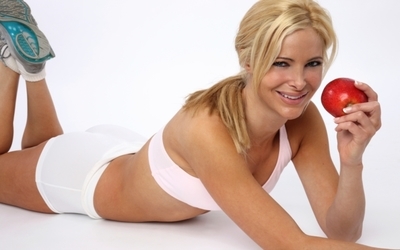What to Eat and When: Nutrition for Your Exercise Routine
It’s important to understand the role nutrition has to play in your workout wellness. Whether you’re a beginner or a seasoned athlete, eating the right foods – and at the right times – is vital to your wellbeing; making all the difference in how you perform, recover and improve. This means you need to attain a balanced diet, which includes the proper amounts of calories, nutrients and fluids, in order to have enough energy and stamina to succeed in your active, healthy lifestyle.
1. Carbohydrates: According to registered and licensed dietician Mandy Seay, author of Your Best Health, ‘Carbohydrates provide our bodies with energy and therefore are needed before, during and after exercise. The best choices are complex carbohydrates like whole grains including brown rice, whole wheat pastas and breads. Fruits, dairy and vegetables will also provide carbohydrates.’
2. Protein: The National Institutes of Health and Academy of Nutrition and Dietetics assert that – contrary to what you might have heard – it is a myth that a high-protein diet promotes muscle growth. Yes, protein is important for your muscles, but only exercise and resistance training can transform them. If you overdo it on the protein front, it can lead to fatigue if you’re replacing much-needed carbohydrates with protein. Too much protein will also be stored as fat, increase your risk of calcium loss and raise the workload for your kidneys.
3. Hydration: There’s no getting around this one; you need to hydrate. ‘Proper hydration is important for performance as well as preventing dehydration, over-hydration and heat-related issues,’ Seay explains. ‘To monitor your hydration status, look at the colour of your urine. Dark urine (like apple juice or tea) indicates dehydration. Light, pale yellow urine is a sign of adequate hydration.’ Sports, Cardiovascular, and Wellness Nutrition (SCAN) recommends drinking water before, during, and after exercise if you’re working out at a low to moderate intensity for less than 60 minutes. If you’re exercising for longer or at a higher intensity than that, SCAN advises sports drinks. SCAN also notes that salty sweaters should eat salty foods before activity and replace after with watery foods that contain salt, like soups or vegetable juice.
4. Before Exercise: Seay notes, ‘Just as you fuel your car before a trip, you must also fuel your body before exercise. Typically eating a meal two to three hours before a workout is sufficient. But if you have gone several hours without eating (like exercising first thing in the morning), eat a snack 30 minutes to one hour before.’ Avoid foods that are high in fat, protein or fibre, as these foods can cause cramps and make you feel sluggish. Instead, try a small serving of oatmeal, juice, a slice of toast with jam or honey or fat-free milk.
5. During Exercise: In the midst of a vigorous workout that lasts longer than an hour, your new best friends are energy bars, bananas and bread with jam. ‘Eating foods that are mainly composed of carbohydrate should help prevent gastrointestinal issues,’ says Seay.
6. After Exercise: It’s likely that you’ll need to replenish your energy stores if you had an intense and/or lengthy workout. ‘Aim to eat within 45 minutes of finishing a workout,’ Seay suggests. ‘In this time period, your blood is still pumping quickly and can rapidly restore electrolytes, replace muscle fuel and repair muscles. If consuming a meal, make it balanced by including carbohydrate, protein and a small amount of fat.’ If you don’t fancy a meal, however, go for a balanced snack like a smoothie made with fruit and yogurt or peanut butter and a banana with low-fat milk.


Comments are closed.